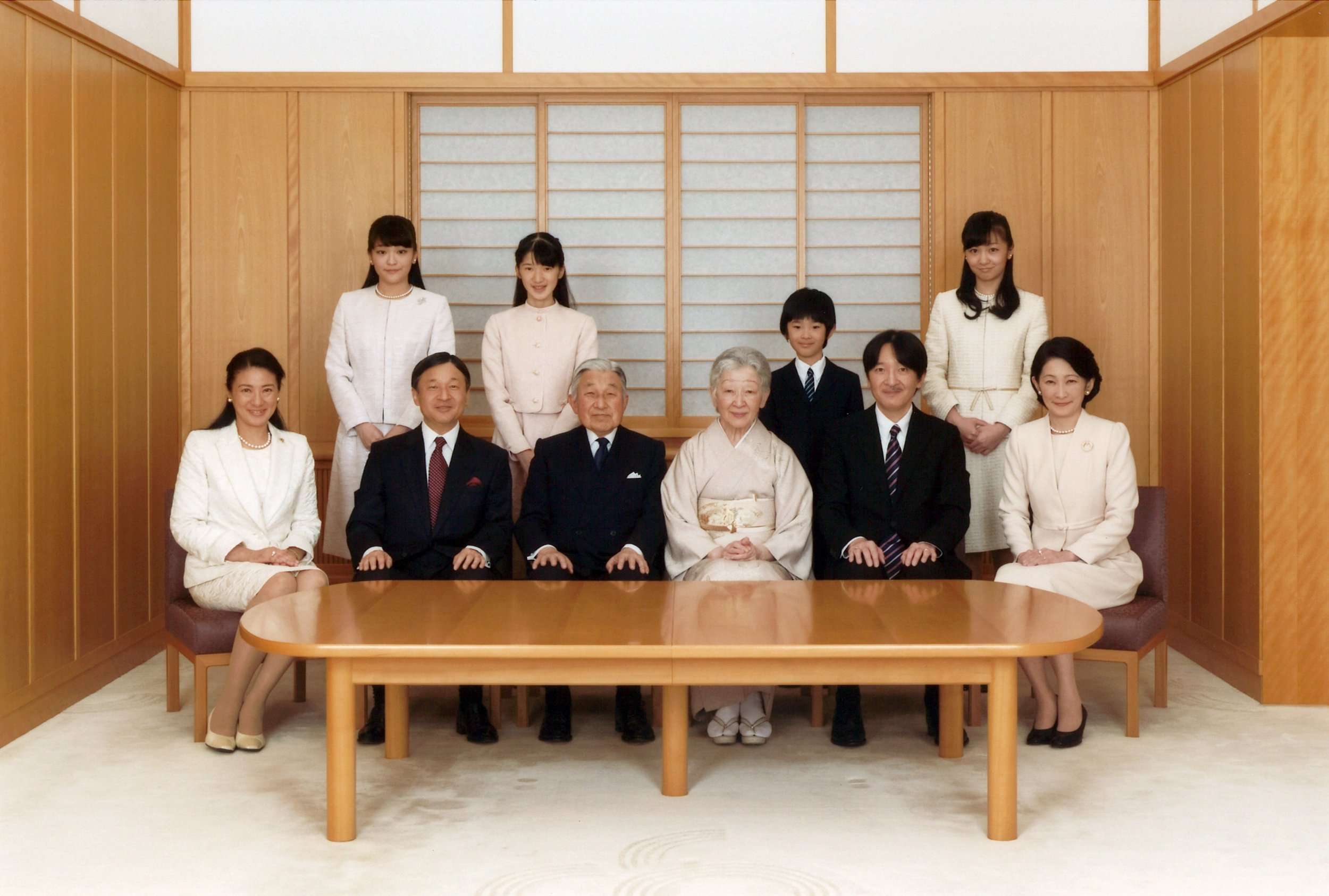
The spotlight is back on Japan's Imperial Family with the announcement of a royal engagement alongside preparations for the first abdication in 200 years.
In a historic week for the ruling Yamato dynasty, Princess Mako will get ready for her engagement as Japan's cabinet approves plans for Emperor Akihito's abdication within the next two years, nine months since the 83-year-old Emperor publicly expressed the desire to step down from his duties due to ailing health.
The cabinet meeting on Friday is likely to result in an amendment to the 1947 Imperial Household Law to accommodate Akihito's abdication, but it won't touch on the thorny subject of male-only succession, the Associated Press reported.
Under the existing law, only four male members of the Imperial Family can ascend to the Chrysanthemum Throne. The first is 57-year-old Crown Prince Naruhito, followed by his 50-year-old younger brother, Prince Akishino, then Prince Akishino's 10-year-old son Prince Hisahito and finally the Emperor's 80-year-old brother, Prince Hitachi.
The first emperor of Japan, Jimmu, is revered as a direct descendent of the sun-goddess Amaterasu, but present-day female members of the Imperial Family who marry commoners lose their royal status in the family, while male members of the family, such as Crown Prince Naruhito who married a commoner in 1993, are allowed to keep theirs.
Japan's failure to address discrimination against women within the Imperial Family drew criticism from the United Nations Committee on the Elimination of Discrimination Against Women in 2016.
Emperor Akihito's eldest granddaughter, Princess Mako, is the latest female family member to fall foul of the law since the announcement of her impending engagement to former university classmate Kei Komuro. A council of eight people, including Japan's Prime Minister Shinzo Abe, will determine the remuneration owed to the princess.
The last high-profile case of an Imperial princess marrying outside the dynasty was in 2005, when Sayako Kuroda, the only daughter of Emperor Akihito and Empress Michiko, married a commoner, receiving a lump sum of about ¥150 million ($1.3 million). The same year, an advisory panel examining the 1947 law recommended opening up the line of royal inheritance to female members of the family to avoid a succession crisis. The Crown Prince's only child is 15-year-old Princess Aiko and her cousin Prince Hisahito is the solitary male heir in his generation.
"In the interests of Japan's future, it is essential to open the way to a female Emperor or an Emperor of female lineage in order to ensure the stability of succession to the Throne, and that such a move would meet with the widespread approval of the Japanese public," the panel recommended.
The committee initially included the Imperial Household Law in the first draft of a package of reform recommendation, but then retracted it following opposition from Tokyo. "It is obvious that (the law) does not intend to discriminate against women," prime minister Abe said commenting on the news at the time, quoted in the Japanese News Agency Kyodo News.
According to historians, only eight women have served as reigning empresses in the nearly 2,700-year old Imperial Family. The last time Japan had a reigning empress was in 1771, when Empress Go-Sakuramachi abdicated in favor of her nephew, who died eight years later. His son-in-law, Emperor Kokaku, reigned from 1780 through 1817, when he abdicated, the last emperor to do so for two centuries.
Uncommon Knowledge
Newsweek is committed to challenging conventional wisdom and finding connections in the search for common ground.
Newsweek is committed to challenging conventional wisdom and finding connections in the search for common ground.
About the writer
Sofia Lotto Persio reports mainly on Asia and gender issues for Newsweek. She previously covered international affairs with a specific ... Read more





